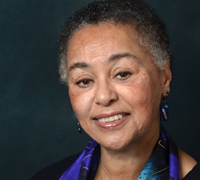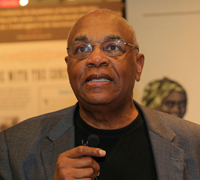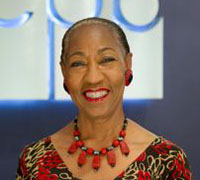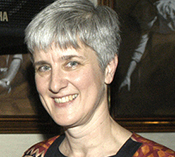 |
William Chafe is the Alice Mary Baldwin Professor Emeritus of History at Duke University. Chafe co-founded the Duke Oral History Program and the Duke Center for the Study of Civil Rights and Race Relations. He also helped create the Duke-UNC Center for Research on Women and is one of the founders of the Center for Documentary Studies. He has authored 13 books and has received numerous awards for his work, including the RFK Book Award (1981) for Civilities and Civil Rights: Greensboro, North Carolina and the Black Struggle for Freedom (1980). |
 |
Daphne Chamberlain is Dean of Social Sciences, Assistant Professor of History, and Coordinator of Civil Rights and Social Justice Initiatives at Tougaloo College. She was the founding Director of the Council of Federated Organizations (COFO) Civil Rights Education Center at Jackson State University, and was named the first research fellow for the Fannie Lou Hamer National Institute on
Citizenship & Democracy in 2010. Chamberlain has served in the planning of the 50th anniversary events commemorating the Freedom Rides, the Tougaloo Nine, the assassination of Medgar Wiley Evers, and the Mississippi Summer Project (i.e., Freedom Summer). Chamberlain is a native of Columbus, Mississippi. Read more. |
 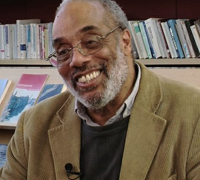 |
Charles E. Cobb Jr. is a former field secretary of the Student Nonviolent Coordinating Committee (SNCC), a journalist, and theauthor of a number of books including Radical Equations: Civil Rights from Mississippi to the Algebra Project (with Robert Moses, Beacon Press, 2001), On the Road to Freedom: A Guided Tour of the Civil Rights Trail (Alonguin Books, 2008), and This Nonviolent Stuff’ll Get You Killed: How Guns Made the Civil Rights Movement Possible (Basic Books, 2014). Read more. |
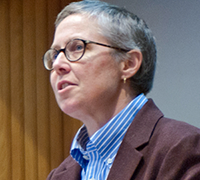 |
Emilye Crosby has been a member of SUNY Geneseo’s History Department since 1995 and has been the coordinator of the Black Studies/Africana program since fall 2002. She has written A Little Taste of Freedom: The Black Freedom Struggle in Claiborne County, Mississippi and edited Civil Rights History from the Ground Up: Local Struggles, a National Movement. Dr. Crosby is also the coordinator of SUNY Geneseo’s annual Martin Luther King, Jr. Commemoration. She has received numerous awards–for her teaching, scholarship, and service. These include the Chancellor’s Award for Teaching, the Harter Mentoring Award, the Chancellor’s Award for Excellence in Faculty Service, and the President’s Award for Research and Creativity. Her first book, A Little Taste of Freedom, won the McLemore Prize and was awarded an honorable mention for the Organization of American Historians’ Liberty Legacy Prize. |
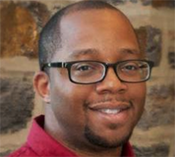 |
John Gartrell is the director of the John Hope Franklin Research Center at Rubenstein Library. He also serves on the Editorial Board of the SNCC Digital Gateway Project and One Person, One Vote: The Legacy of SNCC and the Fight for Voting Rights. |
 |
Wesley Hogan is the director of the Center for Documentary Studies at Duke University, where she teaches the history of youth social movements, African American history, women’s history, and oral history. She is a research professor at the university’s Franklin Humanities Institute and Department of History. Formerly, Hogan taught at Virginia State University, where she codirected the Institute for the Study of Race Relations. Her book on SNCC, Many Minds, One Heart: SNCC’s Dream for a New America (2007), won the Lillian Smith Book Award, among other honors, and she is currently working on a post-1960s history of young people organizing in the spirit of Ella Baker. Since 2013, Hogan has co-facilitated a partnership between the SNCC Legacy Project and Duke University, culminating in the recent full launch of the SNCC Digital Gateway, whose purpose is to bring the grassroots stories of the civil rights movement to a much wider public. |
 |
Hasan Kwame Jeffries is associate professor of History at The Ohio State University, where he teaches graduate and undergraduate seminars on the Civil Rights and Black Power Movement, and surveys on African American and American history. His first book, Bloody Lowndes: Civil Rights and Black Power in Alabama’s Black Belt, tells the story of the ordinary people and student organizers from the Student Nonviolent Coordinating Committee who transformed a rural Alabama county from a citadel of violent white supremacy into the center of southern black militancy. His current book project, Stealing Home: Ebbets Field and Black Working Class Life in Post-Civil Rights New York, explores the struggle of working class African Americans from the civil rights era to the present. Read more. |
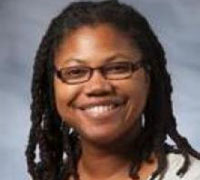 |
Adriane Lentz-Smith, associate professor of history at Duke University, author of Freedom Struggles: African Americans and World War I (2009) and The Laws Have Hurt Me: African Americans, State Violence, and the Legacies of the Civil Rights Movement (forthcoming). |
 |
Danielle McGuire, author of At the Dark End of the Street: Black Women, Rape, and Resistance—A New History of the Civil Rights Movement from Rosa Parks to the Rise of Black Power. Read more. |
 |
Charles M. Payne is the Henry Rutgers Distinguished Professor of African American Studies at Rutgers University Newark and the Director of the Joseph Cornwall Center for Metropolitan Research. His research and teaching interests include urban education and school reform, social inequality, social change and modern African American history, particularly the Black Freedom Struggle. His books include So Much Reform, So Little Change, (Harvard Education Publishing Group, 2008) which examines the persistence of failure in urban schools, and a co-edited anthology, Teach Freedom: The African American Tradition of Education For Liberation (Teachers College Press, 2008), which is concerned with education as a tool for liberation from Reconstruction through Children’s Defense Fund Freedom Schools. He is also the author of Getting What We Ask For: The Ambiguity of Success and Failure In Urban Education(Greenwood Publishing, 1984) and I’ve Got the Light of Freedom: The Organizing Tradition in the Mississippi Civil Rights Movement (1995). Read more. |
 |
Barbara Ransby, professor of history, African-American Studies, and gender and women’s Studies at the University of Illinois at Chicago. Author of award-winning biography, Ella Baker and the Black Freedom Movement: A Radical Democratic Vision (2003). |
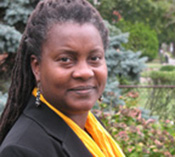 |
Jenice L. View is an associate professor in the Transformative Teaching program at George Mason University. She is the co-editor of Putting the Movement Back into Civil Rights Teaching and Why public schools? Voices from the United States and Canada. For more than 25 years, View has worked with a variety of educational and nongovernmental organizations, including a D.C. public charter school, the Just Transition Alliance, Rural Coalition, the Association for Community Based Education, and LISTEN, Inc. to create space for the voices that are often excluded from public policy considerations: women, people of color, poor urban and rural community residents, and especially youth. She has a B.A. from Syracuse University, an MPA-URP from Princeton, and a Ph.D. from the Union Institute and University. |

